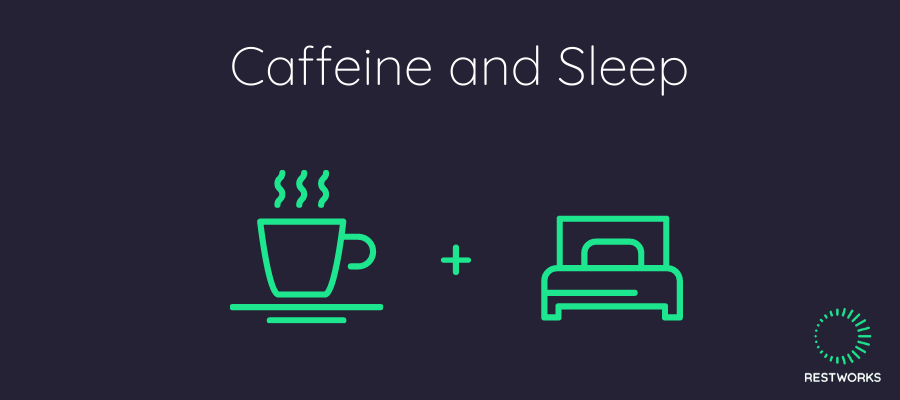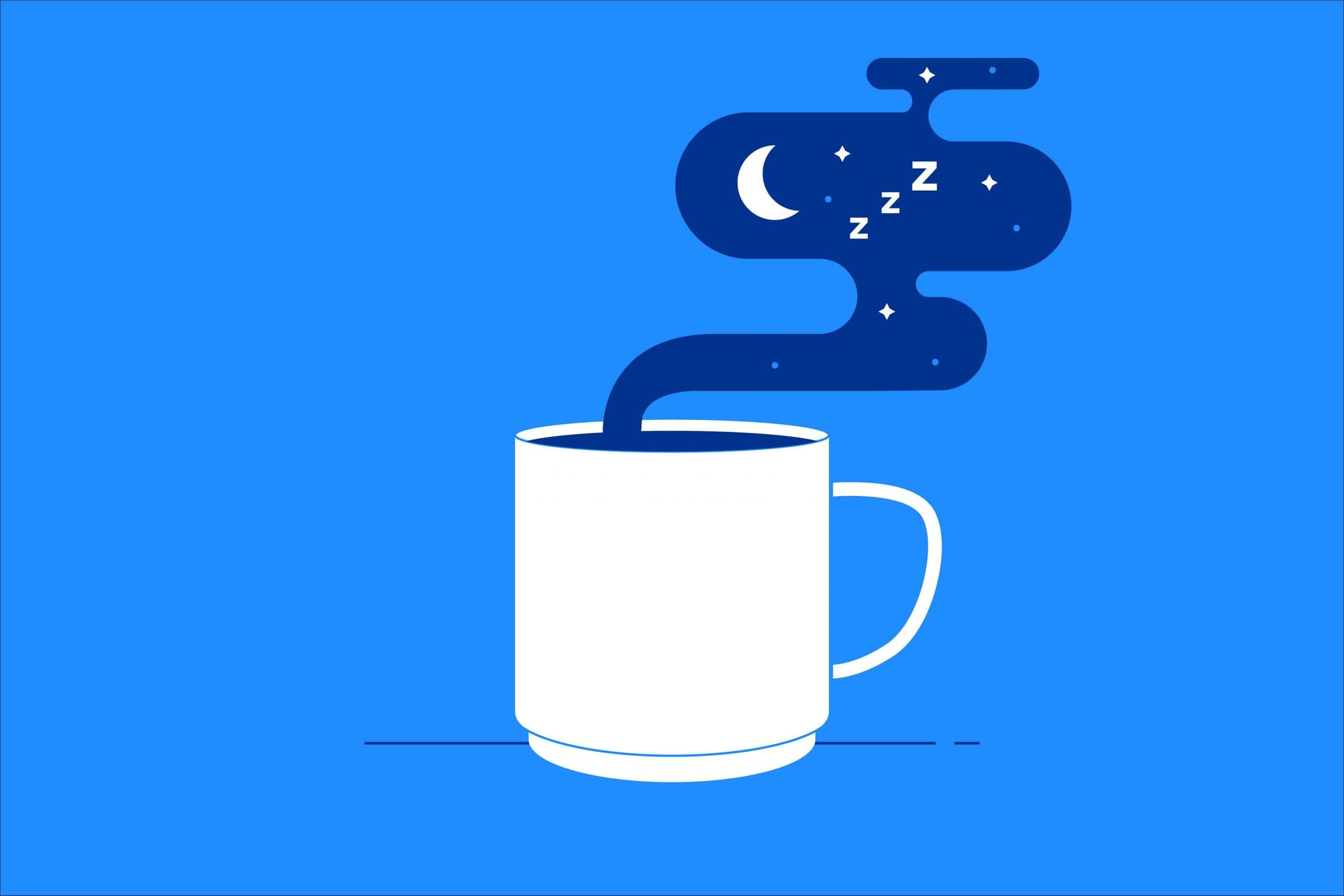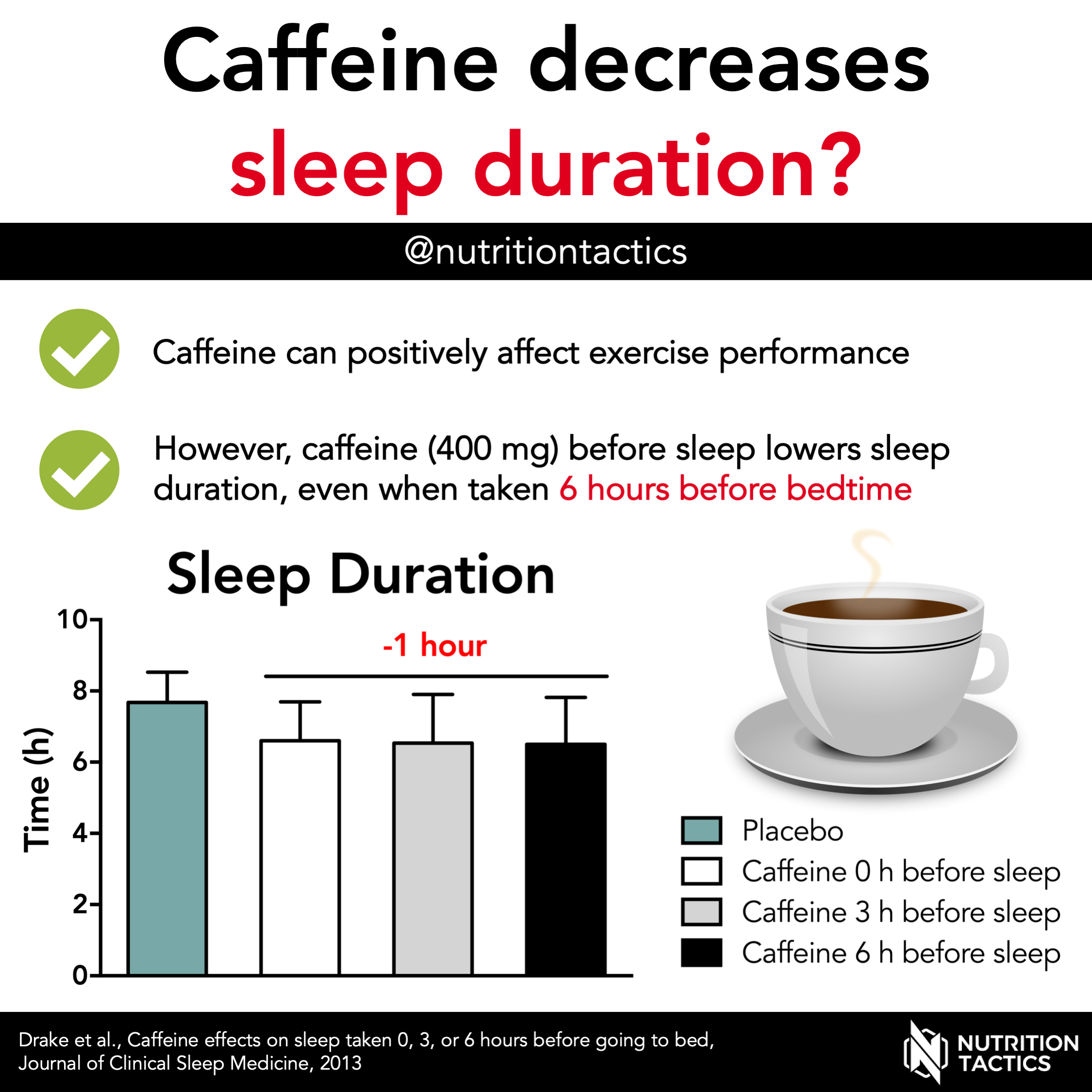Imagine starting your day feeling completely refreshed and energized, ready to tackle whatever comes your way. Sounds ideal, right?
But what if your morning routine includes a cup of coffee or two? You might not realize it, but the relationship between sleep and caffeine could be the hidden force affecting your energy levels. You’re not alone in this quest for balance.
Many people struggle to find the sweet spot where caffeine boosts productivity without sabotaging sleep. You’ll discover the fascinating connection between sleep and caffeine and learn how to harness it to improve your daily life. Dive in to unlock the secrets to a more restful night and a more vibrant day.

Credit: rest.works
Effects Of Caffeine On Sleep
Caffeine is a beloved stimulant for many. Yet, its effects on sleep are significant. Understanding how caffeine interacts with your sleep can help improve your rest.
Caffeine’s Impact On Sleep Cycle
Caffeine blocks adenosine, a chemical that makes you sleepy. This disrupts your natural sleep cycle. It tricks your brain into feeling alert. As a result, falling asleep becomes harder. Caffeine affects REM sleep too. REM is crucial for memory and learning. Less REM can mean feeling tired the next day.
How Caffeine Affects Sleep Quality
Sleep quality suffers when caffeine is in your system. It increases the time taken to fall asleep. This reduces total sleep time. Light sleep stages become more frequent. Deep sleep, essential for recovery, is lessened. Waking up often during the night is common. You might feel unrested despite a full night’s sleep.
Timing Of Caffeine Consumption
Timing is key with caffeine. Consuming it late in the day impacts sleep. It takes several hours to leave your body. Avoid caffeine six hours before bedtime for better sleep. Morning or early afternoon is best for caffeine intake. This limits its impact on your night’s rest.
Benefits Of Caffeine For Alertness
Caffeine is more than just a morning ritual—it’s a powerful ally for those seeking a mental boost. Whether you’re trying to stay awake during a long meeting or need a burst of energy for an evening workout, caffeine can be your best friend. Let’s dive into how caffeine enhances alertness in different aspects of your life.
Enhancing Cognitive Performance
Ever reached for a cup of coffee before tackling a complex task? That’s because caffeine can sharpen your mind. It stimulates your central nervous system, helping you stay focused and attentive.
Research shows that moderate caffeine consumption can improve memory retention. Think of caffeine as a tool to make studying more effective. When your brain is alert, you’re more likely to absorb information efficiently.
Have you noticed how a cup of coffee can make brainstorming sessions more productive? That’s caffeine enhancing your cognitive performance. It helps you think faster and react quicker, making problem-solving less of a chore.
Boosting Physical Energy
Caffeine isn’t just about mental sharpness; it packs a punch for your physical energy too. Remember the last time you felt sluggish before a workout? A quick caffeine boost can change that.
It increases adrenaline levels, preparing your body for physical exertion. This means you can push harder and go longer, whether you’re running or lifting weights.
Notice how athletes often consume caffeine before competitions? It aids in endurance, allowing them to perform at their peak. Next time you’re feeling drained, consider how caffeine might help you power through.
Caffeine As A Mood Enhancer
Beyond boosting energy and focus, caffeine can lift your mood. Ever felt grumpy after a sleepless night? A warm cup of coffee can lighten your spirits.
Caffeine increases dopamine production, which is known as the ‘feel-good’ hormone. This can lead to a happier, more optimistic outlook, especially during challenging days.
Think about how social gatherings often include coffee or tea. It’s not just about the drink; it’s the mood-enhancing effect. Caffeine can make conversations more engaging and interactions more enjoyable.
Next time you reach for a caffeine fix, consider how it can enhance your alertness in these different ways. Are you ready to harness the power of caffeine to boost your day?
Finding The Right Balance
Balancing sleep and caffeine involves finding harmony in daily habits. Caffeine boosts energy but can disrupt sleep if consumed too late. Opt for morning or early afternoon consumption to maintain a healthy sleep cycle.
Finding the right balance between sleep and caffeine can be a game-changer for your daily energy levels and overall well-being. While caffeine is a beloved morning ritual for many, it can also be a sneaky saboteur of restful nights. Striking the right balance requires understanding your body’s unique needs and making conscious choices that support both alertness and relaxation.
Personalizing Caffeine Intake
Understanding your personal caffeine tolerance is crucial. Some people can sip espresso all day without a hitch, while others feel jittery after a single cup. Track your caffeine intake and note how it affects your sleep patterns. Experiment with cutting back or adjusting the timing of your last cup. As you learn what works for you, consider switching to lower-caffeine options like green tea or decaf coffee in the afternoon.
Strategies For Better Sleep
Creating a bedtime routine can significantly improve sleep quality. Avoid screens at least an hour before bed to help your mind wind down. Consider incorporating relaxation techniques like deep breathing or gentle stretches. These can signal your body that it’s time to rest. Ensure your sleeping environment is conducive to rest. A cool, dark, and quiet room often makes a world of difference.
Alternatives To Caffeine
When you need a pick-me-up, non-caffeinated options can be just as effective. A brisk walk or a quick workout can boost energy and sharpen focus. Herbal teas like peppermint or chamomile can provide a soothing alternative without the caffeine jolt. Some people find that a short nap, around 20 minutes, can refresh without disrupting nighttime sleep. How do you balance caffeine and sleep in your life? Finding what works for you can lead to better days and more restful nights.
Caffeine Sensitivity
Caffeine sensitivity varies among individuals. Some people feel jittery with just a cup, while others can drink several without issue. Understanding your caffeine sensitivity can help you improve sleep quality. This section explores what caffeine sensitivity means and how to manage it.
Understanding Individual Differences
Caffeine affects everyone differently. Genetics play a significant role in this variation. Some people metabolize caffeine quickly. Others process it slowly, feeling its effects longer. Age, weight, and health also influence sensitivity. Recognizing these differences is crucial for managing intake.
Symptoms Of Caffeine Sensitivity
Common symptoms include restlessness, insomnia, and a rapid heartbeat. Anxiety and headaches may also occur. Digestive issues like stomach upset can be signs too. Even small amounts can trigger these symptoms in sensitive individuals. Identifying your symptoms helps in managing caffeine better.
Managing Sensitivity For Better Sleep
Limit caffeine intake, especially in the afternoon. Opt for decaffeinated options or herbal teas. Track your consumption and note any sleep disruptions. Gradually reduce caffeine to minimize withdrawal effects. Consult a healthcare professional if symptoms persist. This approach can help improve your sleep quality.
Long-term Effects Of Caffeine Use
Caffeine can disrupt sleep patterns, leading to insomnia and daytime sleepiness. Regular use may alter the body’s internal clock, affecting sleep quality over time. Reducing caffeine intake can help improve sleep health and overall well-being.
Caffeine is a staple in many people’s daily routines, whether it’s the morning coffee or an afternoon energy boost. But what about the long-term effects of caffeine use? While it can provide short-term benefits like increased alertness and improved mood, frequent consumption might have lasting implications on your health and well-being. Understanding these effects can help you make informed choices about your caffeine intake.
Potential Health Risks
Long-term caffeine use may lead to potential health risks that are worth considering. Consuming large amounts of caffeine over time can elevate your blood pressure. This increase, although slight, could contribute to heart-related issues. Furthermore, caffeine can affect bone density. Studies suggest that excessive intake might reduce calcium absorption, leading to weaker bones. If you rely heavily on caffeine, it might be wise to balance it with a calcium-rich diet.
Dependence And Withdrawal
You might enjoy the energy boost caffeine provides, but it can also lead to dependence. Over time, your body may get used to the caffeine, and you may need more to feel the same effects. This dependency can make it challenging to cut back or quit. Withdrawal symptoms can be unpleasant. You might experience headaches, fatigue, or irritability if you suddenly stop consuming caffeine. It’s crucial to recognize these signs and manage your intake to avoid discomfort.
Impact On Sleep Patterns Over Time
Caffeine is a known disruptor of sleep. Consistent use can alter your sleep patterns, making it harder for you to fall asleep or stay asleep. This disruption can lead to chronic sleep issues, affecting your overall health. Over time, you might find yourself in a cycle of needing caffeine to counteract poor sleep, which only worsens the problem. Consider your sleep quality and how caffeine might be affecting it. Would reducing your intake improve your rest? Balancing caffeine consumption with healthy habits can enhance your well-being. Reflect on your usage and consider making adjustments for a healthier lifestyle.

Credit: amerisleep.com

Credit: www.nutritiontactics.com
Frequently Asked Questions
How Does Caffeine Affect Sleep Quality?
Caffeine can disrupt sleep by blocking adenosine, a chemical that promotes sleep. It can lead to difficulty falling asleep and decreased overall sleep quality. Consuming caffeine even 6 hours before bedtime can significantly affect sleep. Reducing caffeine intake, especially in the afternoon and evening, can improve sleep quality.
Can Caffeine Cause Insomnia?
Yes, caffeine can cause insomnia if consumed in large amounts or late in the day. It stimulates the central nervous system, making it harder to fall asleep. Limiting caffeine intake, especially in the afternoon and evening, can help prevent insomnia and improve sleep duration.
How Long Before Bed Should I Avoid Caffeine?
It’s best to avoid caffeine at least 6 hours before bedtime. Caffeine has a half-life of about 3 to 5 hours. This means it can stay in your system longer than you might expect, affecting your ability to fall asleep.
Does Caffeine Impact Rem Sleep?
Caffeine can reduce REM sleep, the dream stage of sleep essential for memory and learning. By affecting this stage, caffeine may impair cognitive functions. Avoiding caffeine before bedtime can help maintain healthy REM sleep cycles and improve overall sleep quality.
Conclusion
Balancing sleep and caffeine is essential for a healthy lifestyle. Caffeine can boost energy, but too much harms sleep. Find your perfect balance. Reduce caffeine intake in the afternoon and evening. Sleep improves mood and focus. A good night’s sleep helps you face daily challenges.
Listen to your body and adjust habits. Remember, moderation is key. Small changes make a big difference. Prioritize restful sleep for better health and happiness. Sleep and caffeine management leads to a brighter, more energetic day. Embrace healthy choices. Feel the positive impact.
Your well-being matters.
